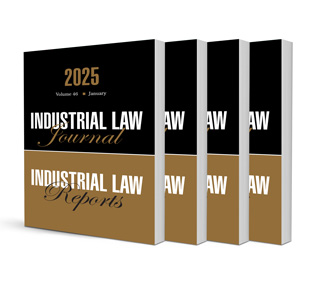Reflections on Proposed Law Reforms for Unfair Dismissal

Reflections on Proposed Law Reforms for Unfair Dismissal
Authors Stefan van Eck, Kamalesh Newaj & Zwivhuya Mashele
ISSN: 2413-9874
Affiliations: Professor of Labour Law, University of Pretoria; Associate Professor of Labour and Social Security Law, University of Pretoria; Lecturer, University of Pretoria
Source: Industrial Law Journal, Volume 46 Issue 4, 2025, p. 2257 – 2286
https://doi.org/10.47348/ILJ/V46/i4a1
Abstract
The NEDLAC social partners have been engaged in a process of formulating amendments to a number of key pieces of labour legislation and their accompanying codes. In an attempt to foster job creation, policymakers have, among others, published proposals with the view to relaxing the seemingly onerous requirements in respect of unfair dismissal law. Although the negotiating parties have not reached consensus on key aspects of the amendments, significant suggestions have been placed on the table regarding amendments to the Code of Good Practice: Dismissal, as well as important provisions of the Labour Relations Act. The proposed amendments seek to relax unfair dismissal provisions in respect of small employers; they exclude unfair dismissal protection during probation; they recognise incompatibility as a separate ground of dismissal; and they place a cap on the maximum compensation which higher earning employees might be eligible to claim. This contribution analyses these proposed amendments, focusing on their projected effects on the regulatory landscape of unfair dismissal in South Africa.